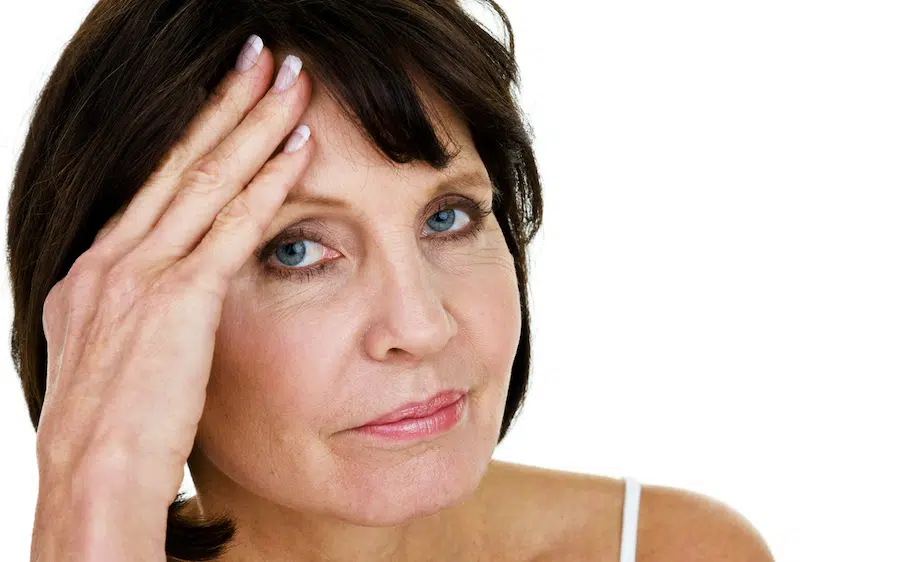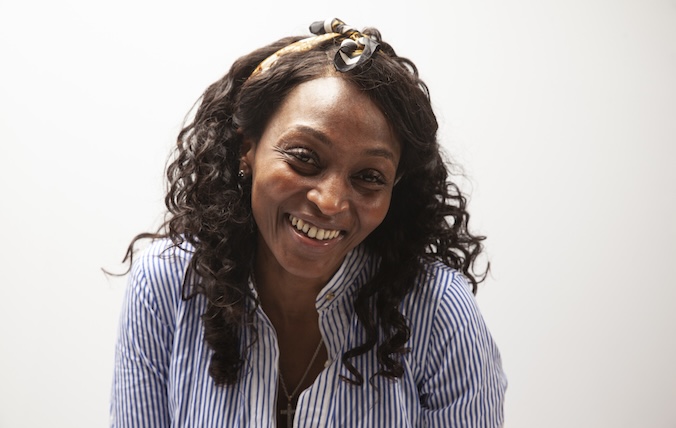How does menopause affect the skin?

The symptoms associated with menopause are well documented; these include hot flushes, night sweats, headaches, mood changes, joint stiffness and much more.
You can do plenty of natural things to relieve some of these symptoms, which we’ve discussed here. However, we wanted to touch upon the impact this transition can have on your skin.
Can menopause cause skin problems?
The symptoms associated with menopause are well documented; these include hot flushes, night sweats, headaches, mood changes, joint stiffness and much more.
You can do plenty of natural things to relieve some of these symptoms, which we’ve discussed here. However, we wanted to touch upon the impact this transition can have on your skin.
What happens to your skin during menopause?
We’ll be looking at six changes that can happen to your skin throughout menopause and advise on how to manage if you start experiencing them.
Age spots
These are dark patches of skin that can appear on your hands, shoulders, face, neck, chest and arms. They’re also referred to as sunspots, as you’re more likely to develop them if you’ve spent a considerable amount of time unprotected out in the sun.
It’s essential to note that the risk of pre-cancerous skin growths and skin cancer also increases during menopause. Therefore, you must carry out regular skin checks and contact your GP if you have any concerns at all.
Applying sunscreen at SPF 30 or higher every day will help fade current age spots and reduce new ones forming. It will also lower your risk of getting skin cancer, so if you take anything from this post, let it be this – applying sunscreen daily is vital.
Thinner skin
Another way menopause affects our skin is that it becomes thinner and more easily bruised. That’s because of the drop in oestrogen levels. While you can’t rethicken your skin, you can halt the thinning process.
And the great news is that you’ll be killing two birds with one stone, so to speak. The solution is to apply sunscreen every day, even during the colder months.
Dry Skin
If you’ve noticed your skin becoming dry in concurrence with menopause, you’re not alone. That’s because menopause makes your skin less capable of holding water. You’re likely to notice this even more when the air is dry.
If you’re struggling with this menopause symptom, swap your soap to a mild cleanser and apply moisturiser after washing, topping up whenever you notice your skin feeling dry. You may want to opt for a moisturiser that has glycerin or hyaluronic acid as an additional help.
Easily irritated skin
Horrid itchiness and even rashes can occur in response to menopause. That’s because the pH level of our skin begins to change as we get older, making it more sensitive.
If you already manage a skin condition, such as rosacea or eczema, these could be made worse during menopause.
To reduce these symptoms as much as possible, opt for a fragrance-free moisturiser to lower skin irritation. If you have a rash that gets worse, visit your GP for further advice.
Wrinkles and sagging skin
We begin to lose collagen naturally as we age, but this is exacerbated by menopause, losing around 30% of our body’s collagen throughout the first five years. Following that, you can expect collagen to continue depleting, but not as quickly; you’ll only lose around 2% of collagen per year.
This results in skin sagging and wrinkles forming. You may even start to develop jowls.
Again, you can hinder the speed at which your skin sags and wrinkles appear by applying daily sunscreen. Another way is to boost your collagen with natural supplements. We stock a variety of collagen supplements, including options for vegetarians and vegans.
Acne
Remember those teenage years of acne and spots? Well, unfortunately, you may experience them again once menopause hits, thanks to the drop in hormone levels. But we don’t recommend picking up a regular acne solution from the shop as this may be too harsh for your skin, particularly if it has thinned.
Instead, opt for a face wash that will moisturise your skin, and speak to your doctor about alternative options if the problem persists.
We appreciate how difficult navigating menopause can be, and we hope this post helps make things easier for you. Please remember to be kind to yourself and your skin during this process, and if you need any help from us, we stock a variety of menopause relief supplements which can ease the process.






